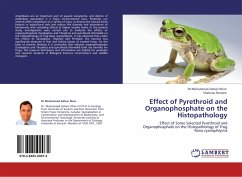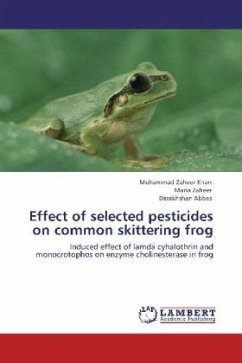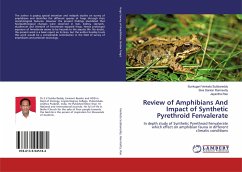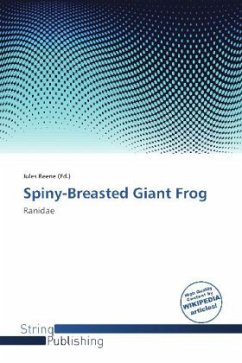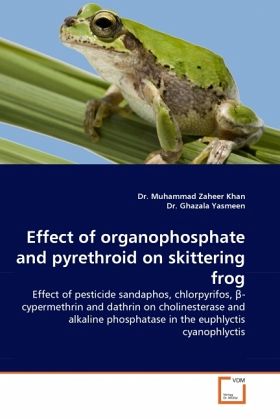
Effect of organophosphate and pyrethroid on skittering frog
Effect of pesticide sandaphos, chlorpyrifos, -cypermethrin and dathrin on cholinesterase and alkaline phosphatase in the euphlyctis cyanophlyctis
Versandkostenfrei!
Versandfertig in 6-10 Tagen
39,99 €
inkl. MwSt.

PAYBACK Punkte
20 °P sammeln!
The decline of amphibian population is a major environmental issue. Pollution in the aquatic ecosystem by pesticides is considered critical in the conservation of biodiversity. Several studies have reported the toxicological issues and adverse effects of pesticides in aquatic environment and biodiversity. The indiscriminate use of pesticides is considered one of the important factors that change the environment by causing imbalances in the ecosystem, especially in biota of the aquatic system. The present study was done to investigate the effects of two selected pesticide group organophosphate ...
The decline of amphibian population is a major environmental issue. Pollution in the aquatic ecosystem by pesticides is considered critical in the conservation of biodiversity. Several studies have reported the toxicological issues and adverse effects of pesticides in aquatic environment and biodiversity. The indiscriminate use of pesticides is considered one of the important factors that change the environment by causing imbalances in the ecosystem, especially in biota of the aquatic system. The present study was done to investigate the effects of two selected pesticide group organophosphate (Sandaphos, Chlorpyrifos) and pyrethroid ( -Cypermethrin and Dathrin) on enzyme cholinesterase and alkaline phosphatase in the liver, kidney and brain tissues of skittering frog Euphlyctis cyanophlyctis. It was observed that under the effects of Sandaphos, Chlorpyrifos, - Cypermethrin and Dathrin the enzyme activities were found to be significantly inhibited in liver, kidney and brain tissues of treated frogs. The research techniques and results are helpful for graduate and research students of Biological Sciences, Environmental Science and wetland managers.



